|
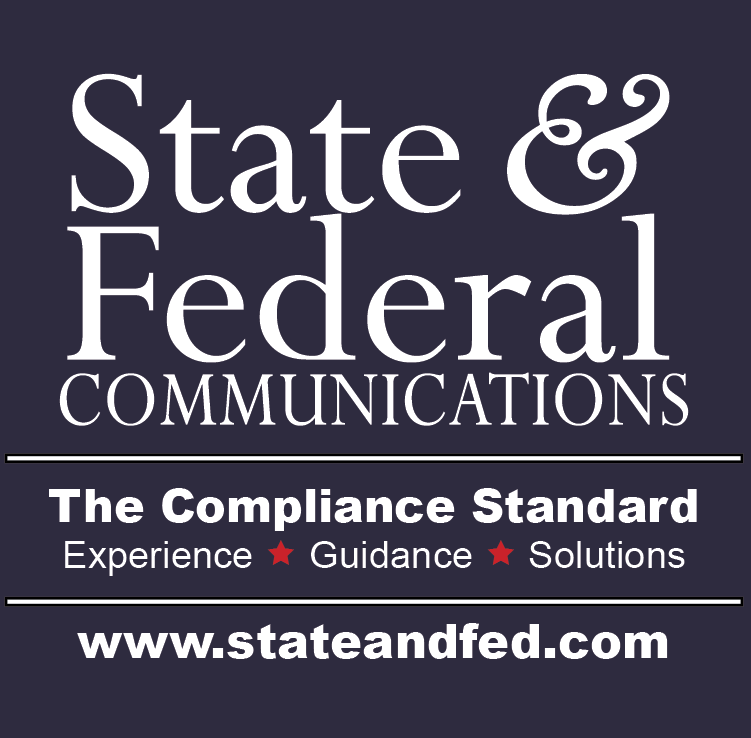 |
 |
E-News from State and Federal
Communications, Inc.
November 2019
Council on Governmental
Ethics Laws Conference
|
|
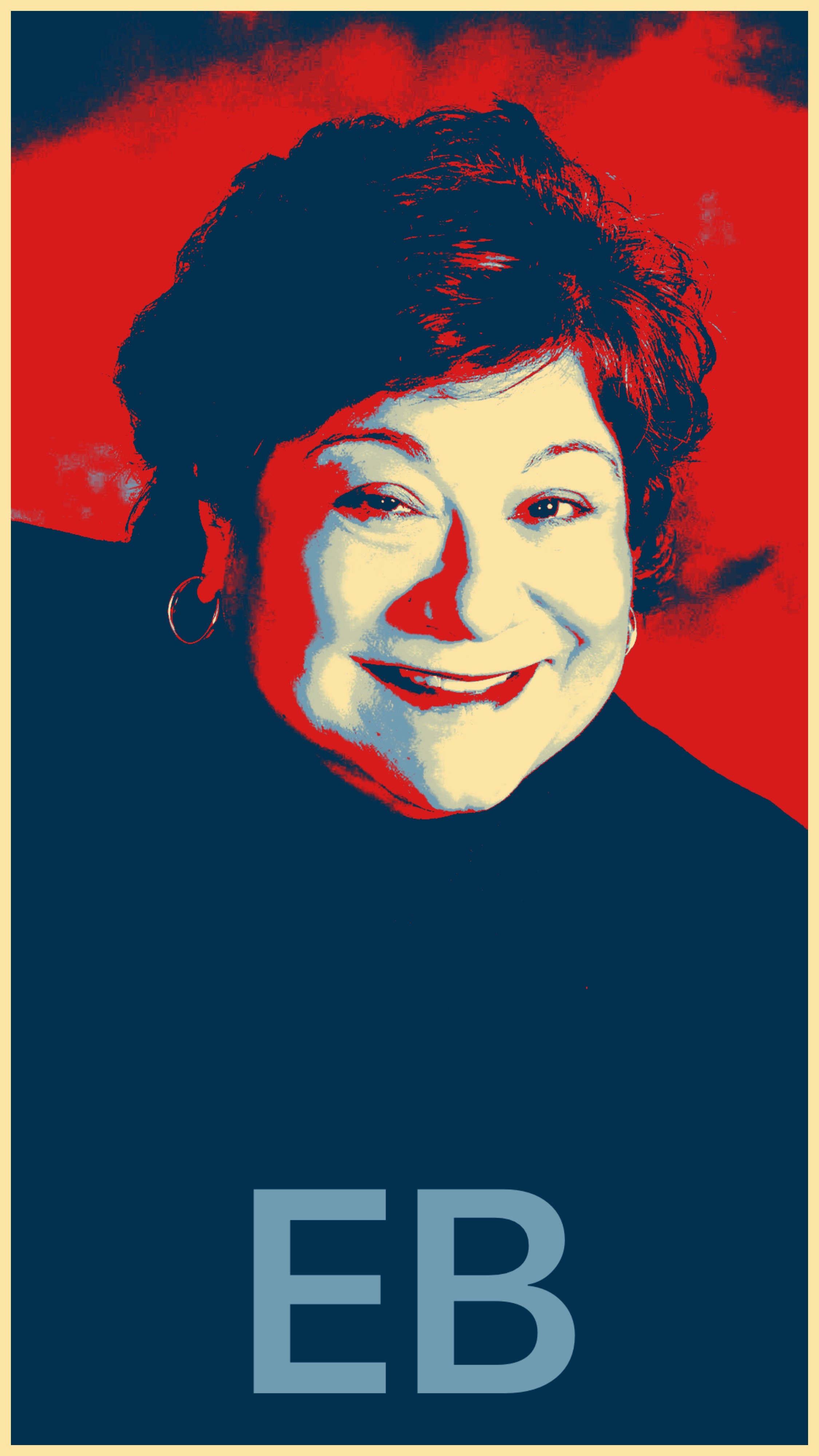 I
get a lot of calls about the conferences and programs we
attend all around the country. “Why do you attend?” “Do you
really need to go to all those programs?” And, of course,
“Are you on vacation again?” Okay, that last one is from my
mother! I
get a lot of calls about the conferences and programs we
attend all around the country. “Why do you attend?” “Do you
really need to go to all those programs?” And, of course,
“Are you on vacation again?” Okay, that last one is from my
mother!
The answer is “YES,” I do need to attend. I meet a lot of
our clients and friends around the country and attend a lot
of sessions. I am definitely not the person who hangs out at
the pool instead of sessions.
I have attended the annual Council on Governmental Ethics
Laws conference every year since 2000. Do you remember 2000?
We were in Tampa, Florida discussing the presidential
election when the fact of the matter was we still did not
know who won.
Eight years later in 2008, we were in a session with
Illinois Gov. Rod Blagojevich’s chief of staff when he
received a message that the governor had been arrested.
Well it has been 11 years since we were in Chicago, but we
are headed back there December 15 through 18 after attending
conferences in Washington DC, Nashville, Quebec, New
Orleans, Scottsdale, Boston, Toronto, Philadelphia,
Pittsburgh, and Columbus.
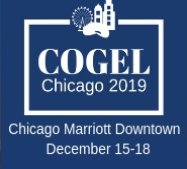 These
are great opportunities to speak directly with the ethics,
lobbying, and PAC directors in the states. You aren’t going
to receive an off-the-cuff advisory opinion, but it is a
casual enough atmosphere that you can converse with the
folks we work with all year long. These
are great opportunities to speak directly with the ethics,
lobbying, and PAC directors in the states. You aren’t going
to receive an off-the-cuff advisory opinion, but it is a
casual enough atmosphere that you can converse with the
folks we work with all year long.
You can see the thorough agenda and registration materials
at
www.cogel.org.
You will notice we start in the morning and end eight hours
later. The COGEL members want the states to know they are
not wasting time during the day but have it filled with of
sessions.
Until next month, check out the COGEL site and see if it is
of interest to you to attend. State and Federal
Communications will have seven staff people in attendance so
you will see us all around.
Thank you.
Elizabeth Z. Bartz
President and CEO
@elizabethbartz |
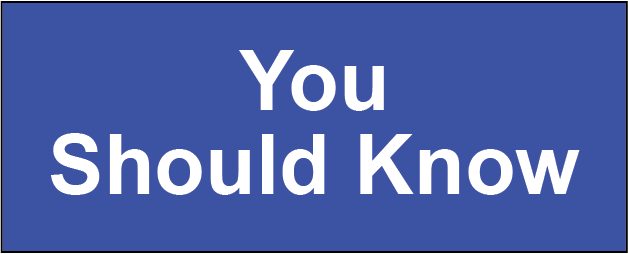
California Amends Political
Reform Act
During 2019 Legislative Session
Mario Dalessandro, J.D.
Research Associate
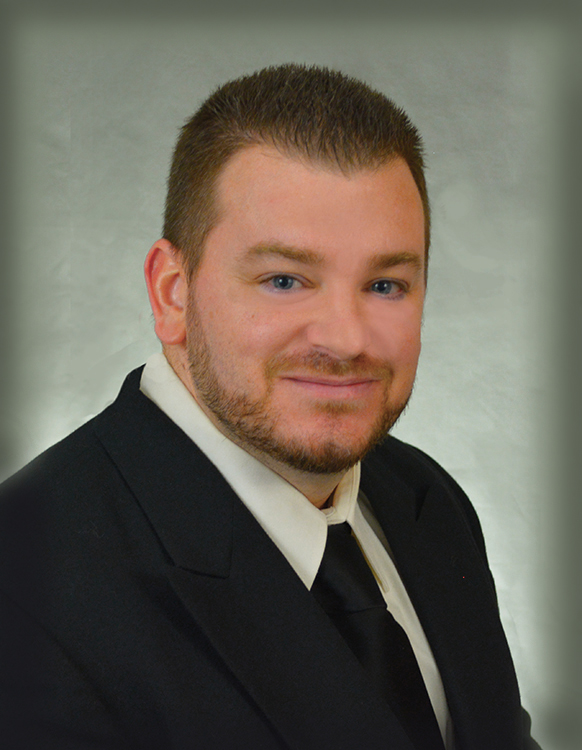 Gov.
Gavin Newsom signed several bills passed by the Legislature to
amend lobbying and campaign finance laws in the Political Reform
Act of 1974. Unless noted otherwise, the bills are effective
January 1, 2020. Gov.
Gavin Newsom signed several bills passed by the Legislature to
amend lobbying and campaign finance laws in the Political Reform
Act of 1974. Unless noted otherwise, the bills are effective
January 1, 2020.
Lobbying Laws
Assembly Bill 902 requires a
lobbyist registration statement to be filed both electronically
and physically until the Office of the Secretary of State
certifies an online filing and disclosure system. Upon
certification, the registration statement will only be filed
electronically. The bill also requires audits and investigations
of lobbying firms and lobbyist employers to be performed by the
state Franchise Tax Board on a biennial basis and cover reports
filed during a period of two years.
Campaign Finance Laws
Assembly Bill 571 imposes limits
on contributions to candidates for elective county and city
offices in jurisdictions that have not independently imposed
contribution limits. Currently, a county or a city may, by
ordinance or resolution, limit campaign contributions in local
elections. However, many counties and cities have not imposed
such limits. The bill establishes contribution limits of $4,700
per election to a candidate for elective office in a city or
county in which the local government has not established a
limit. Local governments will also be permitted to establish
different limits more precisely tailored to the needs of the
community. Assembly Bill 571 becomes effective January 1, 2021.
Assembly Bill 201 broadens the
definition of mass mailing to include campaign-related
mass texting. Mass text messages will be required to include the
name or image of a candidate or refer to a ballot measure.
Assembly Bill 220 and Senate Bill
71 prohibit the expenditure of funds in a legal defense fund
campaign account to pay or reimburse a candidate or elected
officer for attorney's fees or other legal costs. The bills also
prohibits the use of campaign funds to pay for fines, penalties,
judgments, or settlements, except as specified.
Assembly Bill 903 clarifies
general committees must file disclosures if, during a
preelection reporting period, the committee makes contributions
or independent expenditures totaling $500 or more to a general
purpose committee, or to support or oppose a candidate or
measure appearing on the ballot at the next primary or general
election.
[The details for this article are updated on our website in the
Gift Law and Definitions
sections of the Lobbying Compliance Laws and Political
Contribution
Compliance Laws for California.]
|
 Summary of Changes UPDATE Summary of Changes UPDATE
Note Recent Changes to
Compliance Regulations
Michael Beckett, Esq.,
Research
Manager
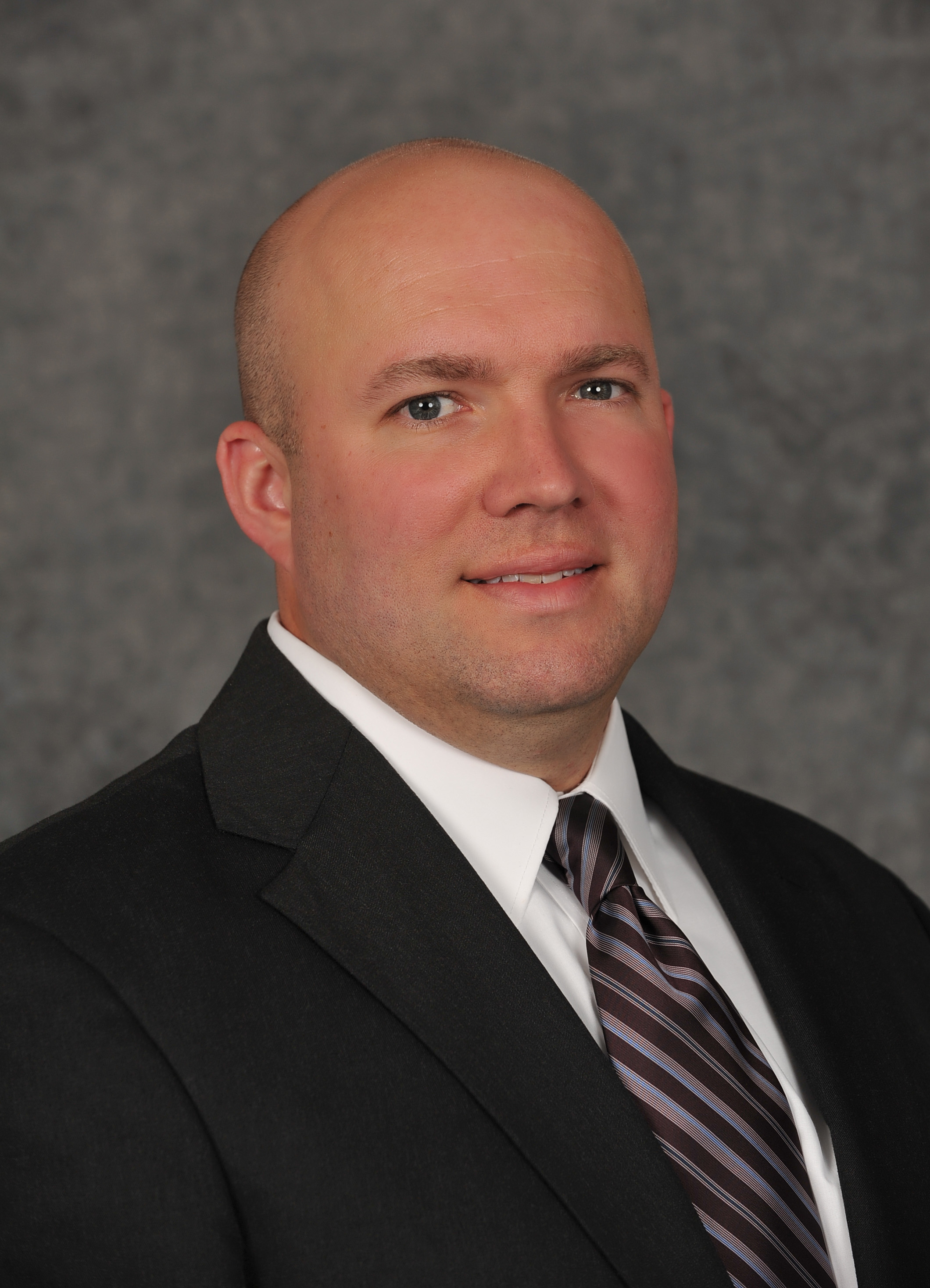
BALTIMORE, MARYLAND:
In 2018, the City Council enacted the Transparency in Lobbying Act
requiring lobbyists to file reports twice a year and
affirmatively identify their clients when approaching city
government officials. The effective date of the act was
contingent on a viable online reporting system being
implemented. The City Ethics Board has now implemented the
online lobbying reporting system, allowing lobbyist registrations
and reports to be filed electronically. The next year-end report
is due on or before January 31, 2020, covering all of the
reporting period immediately preceding January 1 through
December 31, 2019. The City Ethics Board has advised persons
that previously filed paper registration statements to submit
the year-end report on paper and not electronically.
MONTANA:
Campaign contribution limits increased following an every other
year adjustment required by state law to match inflation. The
amount an individual or PAC may give to the campaign for
governor rose from $680 to $710 per election. Additionally, the
aggregate amount a PAC may give to a candidate for state Senate
rose from $2,850 to $3,050 and rose from $1,750 to $1,850 for a
candidate for state House. The Commissioner of Political
Practices is in charge of calculating the increase by
multiplying last cycle’s limits by an inflation factor provided
by statute. The new contribution limits took effect September
21. Contributions made before that date are subject to the old
limits. However, those who have already given money may
contribute again up to the new limits.
NEW JERSEY:
A U.S. District Court for the District of New Jersey issued an
opinion and order issuing a preliminary injunction prohibiting
the state of New Jersey from enforcing the changes in the law
from a bill passed earlier this year concerning disclosure
requirements by independent expenditure committees. Senate Bill
150, which was to take effect on October 15, requires the
committees to disclose donors giving more than $10,000 and
expenditures over $3,000. The parties filing the lawsuit,
Americans for Prosperity v. Grewal, argue the disclosure
requirements are unconstitutional and violate the First
Amendment. The preliminary injunction will continue while the
lawsuit proceeds.
OHIO:
The House passed legislation on October 10 to reverse provisions
in the state budget bill, restoring a business tax exemption for
attorneys and lobbyists. Senate Bill 26 was originally
introduced to allow educators to claim an income tax deduction
for out-of-pocket classroom expenses. The House Finance
Committee approved amendments to restore the deduction for
attorneys and lobbyists excluded in the two-year state operating
bill tax policy of House Bill 166. Since 2013, the state
business income deduction (BID) has allowed those deriving
income from any pass-through entity (e.g., LLCs, LLPs) to pay no
tax on the first $250,000 of income and a flat 3% on any income
above that threshold. House Bill 166 excluded otherwise eligible
income from legal services provided by an attorney or income
from legislative, executive agency, or retirement system
lobbying activity beginning in 2020. Senate Bill 26 has been re-referred to the Senate for final approval.
PUERTO RICO:
The Department of Justice released a lobbyist registry on its
website, as required by Executive Order 2019-031, to establish a
code of transparency for all agency heads in the executive
branch. The lobbyist registry is part of an automatic slideshow
on the main page of the Department of Justice. There are two
separate links: one to conduct a search in the registry and the
other for lobbyists to register. However, lobbyists have not yet
been featured on the registry webpage. The Puerto Rico
Innovation and Technology Service and the Department of Justice
indicated they are working to publish the content. |
Legislation We Are
Tracking
At any given time, more than 1,000
legislative bills, which can affect how you do business as a government
affairs professional, are being discussed in federal, state, and local
jurisdictions. These bills are summarized in State and Federal
Communications' digital encyclopedias for lobbying laws, political
contributions, and procurement lobbying and can be found in the client
portion of our website.
Summaries of major bills are also included
in monthly email updates sent to all clients. The chart below shows the
number of bills we are tracking in regard to lobbying laws, political
contributions, and procurement lobbying.
| |
Total bills |
Number of Jurisdictions |
Passed |
Died |
Carried over
to
2020 |
|
Lobbying Laws |
313 |
52 |
56 |
83 |
72 |
|
Political Contributions |
583 |
59 |
91 |
168 |
143 |
|
Procurement Lobbying |
344 |
51 |
50 |
89 |
70 |
|
|
 |
|
Our website now has 2020 legislative session and
lobbying key dates information for all 50 states,
over 300 local jurisdictions, five U.S. territories,
the federal government, Canada, and select European
jurisdictions. In the Lobbying Compliance Laws
publication, the key dates information provides a
schedule of all reports and registrations due in
2020. Continue to watch the website for updates to
the 2019 and 2020 key dates and for the addition of
key dates information regarding your political
contribution compliance programs. |
|
|
|
|
ASK THE
EXPERTS
State and
Federal Communications’ Experts
Answer Your Questions
Here
is your chance to “Ask the Experts” at State and Federal
Communications, Inc. Send your questions to
experts@stateandfed.com.
(Of course, we have always been available to answer
questions from clients that are specific to your needs, and
we encourage you to continue to call or email us with
questions about your particular company or organization. As
always, we will confidentially and directly provide answers
or information you need.) Our replies are not legal advice,
just our analysis of laws, rules, and regulations.
|
 |
Our company prefers to hire individuals with very
specific skills and knowledge about our industry. Often,
this can include former state procurement officials. Are
there any issues we should be aware of during the hiring
process? |
|
|
 |
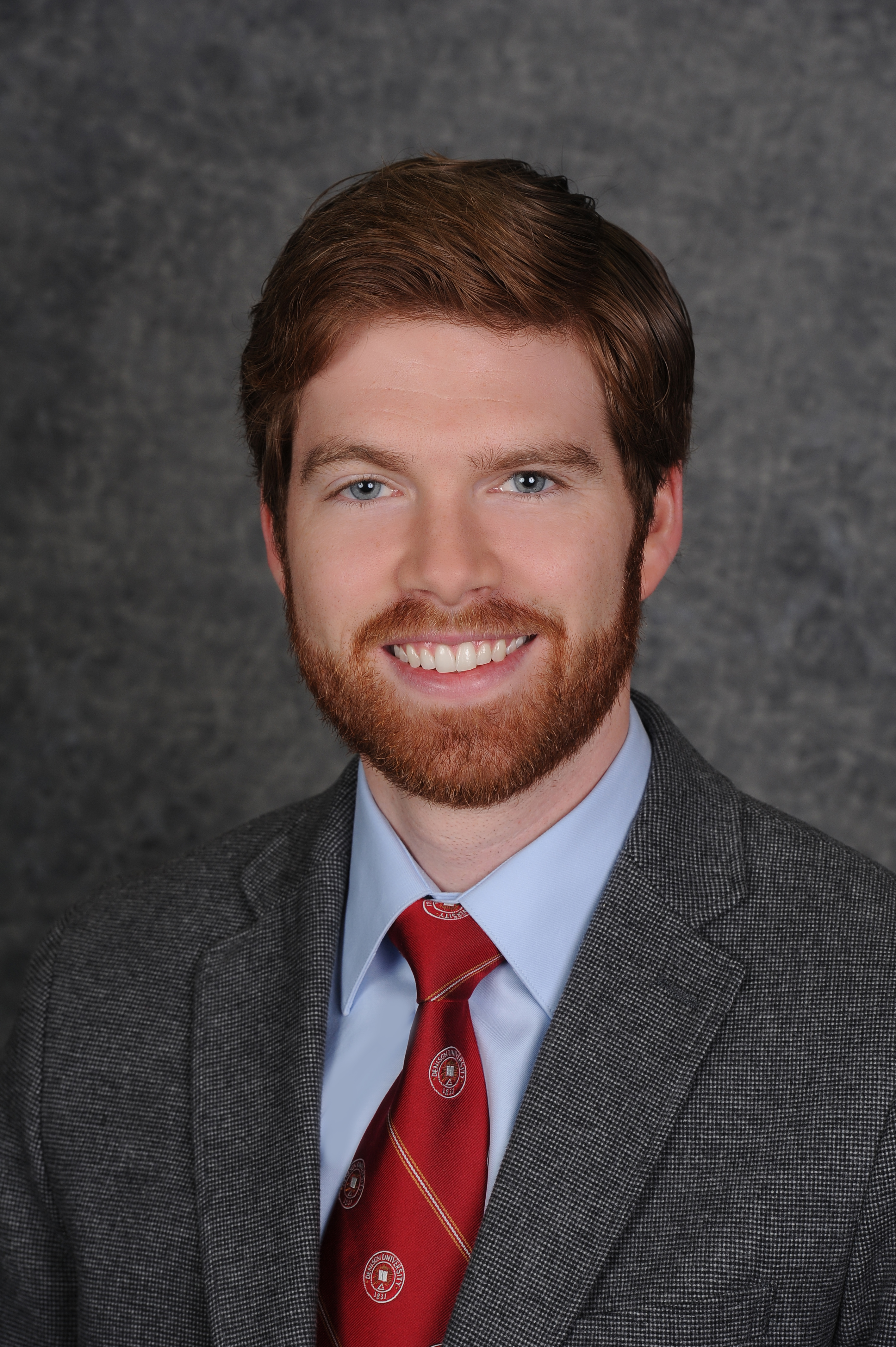
This scenario is known as the revolving door between
public and private employment. While this is a great
strategy for business, states and even municipalities
are increasingly scrutinizing these relationships and
restricting what former officials or employees may do
once they have entered the private sector. Avoiding the
appearance of impropriety, particularly in the awarding
of large state contracts, has become a priority across
the country.
Many states have a required cooling-off period following
the transition. In Florida, members of the Legislature,
appointed state officers, and statewide elected officers
are prohibited from personally representing another
person or entity for compensation before the government
body or agency of which the individual was a member for
two years following vacation of office. By the end of
2022, this restriction increases to six years following
the vacation of a public position.
Texas law includes a similar restriction, but also
includes a permanent restriction on former officials
representing a new employer regarding any matters in
which they personally participated while serving with
the agency, either through personal involvement or
because the matter was within his or her official
responsibility. Violations of either of the revolving
door provisions are a Class A misdemeanor.
Avoid messy entanglements with state agencies or
potential reputational harm to your company by knowing
where your new hires stand with their former employers.
For more information, be sure to check out the
"Important Features of the Law" section of the U.S.
Lobbying Compliance Laws online publication for each
state. Please feel free to contact us if you have any
questions.
Read the full article here
Kevin Newman,
Esq.
Compliance
Associate
Click here to read ALL Ask the Experts articles in full
Please fill out the small form to gain access to all
articles free! Thanks.
Click here for subscription information
|
|
State and
Federal Communications’ Experts
Timothy Kilcullen
Research
Assistant
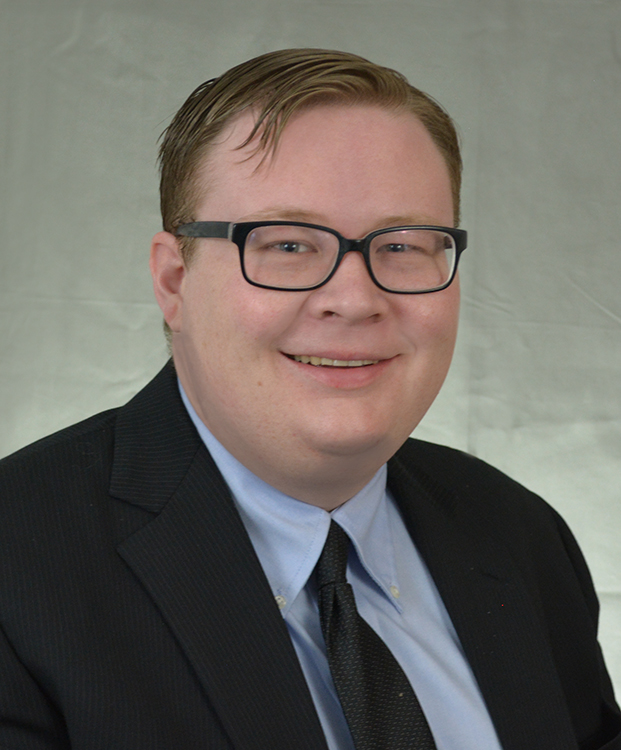 This
year’s State and Local Conference from the Public
Affairs Council was a giant success. Over four
hundred members of firms working in lobby law and
government relations, including eight State and Fed
teammates, gathered in late September for a series
of presentations by top experts in the field. All
the seminars were exciting and engaging. Attorney
Ken Gross discussed the need to maintain compliance
with state and local lobbying laws, and the
foolishness of disregarding them. Former Gov. Robert
Ehrlich spoke of the need for public figures to
recognize the vital role lobbyists play in the
democratic process. Representatives from the
American Heart Association described how to navigate
the complex process of legislative testimony while
lobbyists from Walmart and the American College of
Surgeons walked through the details of grassroots
lobbying. This
year’s State and Local Conference from the Public
Affairs Council was a giant success. Over four
hundred members of firms working in lobby law and
government relations, including eight State and Fed
teammates, gathered in late September for a series
of presentations by top experts in the field. All
the seminars were exciting and engaging. Attorney
Ken Gross discussed the need to maintain compliance
with state and local lobbying laws, and the
foolishness of disregarding them. Former Gov. Robert
Ehrlich spoke of the need for public figures to
recognize the vital role lobbyists play in the
democratic process. Representatives from the
American Heart Association described how to navigate
the complex process of legislative testimony while
lobbyists from Walmart and the American College of
Surgeons walked through the details of grassroots
lobbying.
|
All this unfolded in the perfect fall
weather of Old Town Alexandria. The city
which hosted America’s founding fathers like
George Washington, Thomas Jefferson, and
James Madison provided the perfect backdrop
for lessons on the inner workings of our
modern democratic process.
Even if State and Federal had not been a
conference sponsor, our company would still
be a familiar name to many of the attendees.
Person after person detailed to us how they
rely on the work done by us here in Akron. I
know everyone in the State and Federal
Communications team will
be sure to keep up the good work for 2020!
|
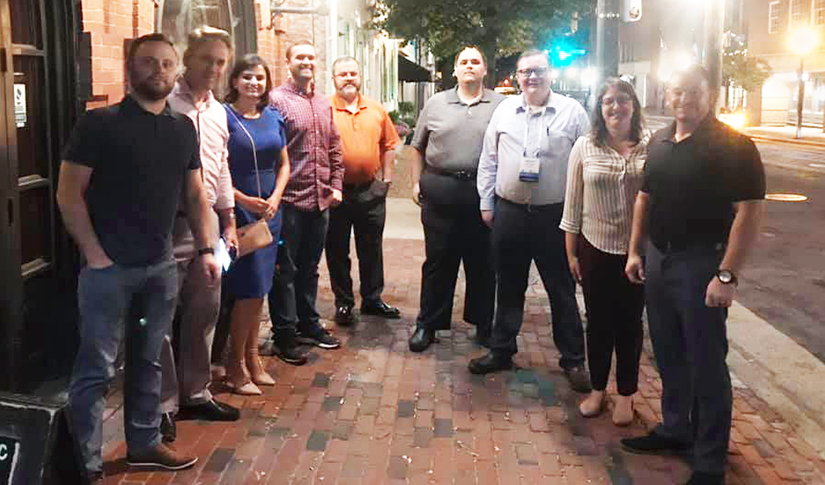
PAC State and Local attendees
from State and Federal Communications, Inc.
included: Jon Spontarelli, Joanna
Kamvouris, James Warner, Gregory Bennett,
Timothy Kilcullen, Anastasia Hadgigeorge,
and Mario Dalessandro.
|
|
|
|
|
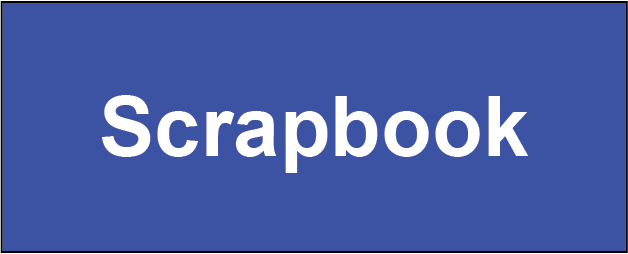
|
 |
|
|
State and Federal Communications, Inc. enjoyed a
round of golf with
Mark Campbell
and
Secretary Tom Ridge
of Ridge Policy Group; and James Warner, Esq.,
our Sr. Compliance Associate. |
|
|
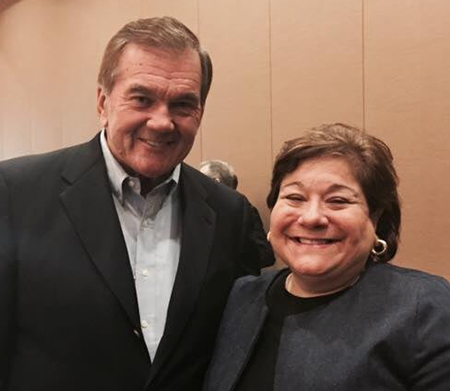 |
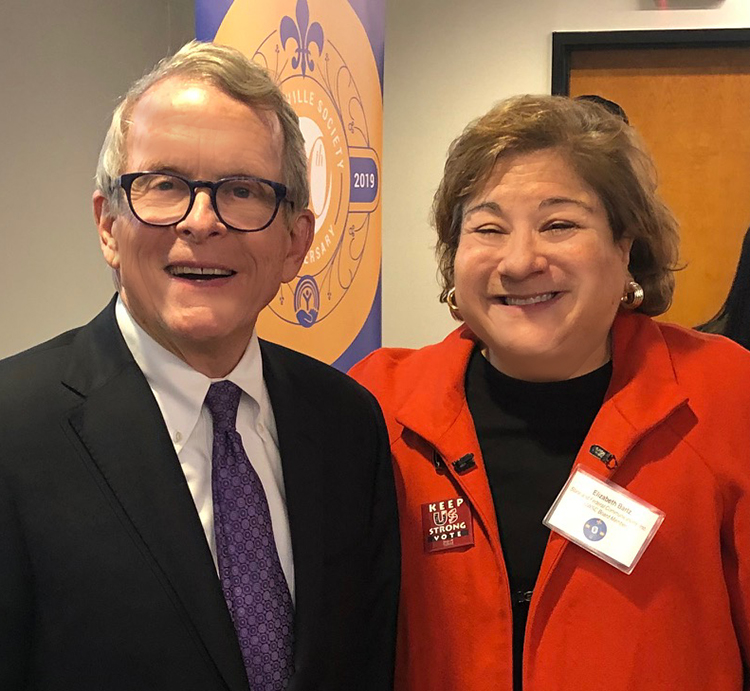 |
|
|
Akron Roundtable hosted
Friend of State and Federal Communications and
Former Pennsylvania Governor
and Homeland Security Secretary Tom Ridge,
President, Ridge Global. |
The
United Way of Summit County hosted Ohio Governor
Mike DeWine in October. |
|
|
|
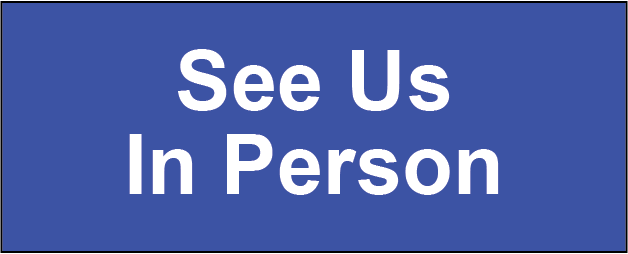
Plan to say
hello at future events where State and Federal
Communications, Inc.
will be attending and/or speaking
regarding compliance issues. |
|
November 13-14 |
Women in Government -- State
Directors Conference, Washington, DC |
|
November 14-16 |
NCSL Emerging Leaders Meeting, Atlanta, GA |
|
November 14 |
Leadership Akron -- Lieberth
Community Vision Award,
Akron, OH |
|
November 21 |
Akron Roundtable, Akron, OH |
|
November 23-26 |
SGAC LPC,
Charleston, SC |
|
COMPLIANCE NOW is published for our
customers and friends.
Click here
to
SUBSCRIBE
or
click here
to UNSUBSCRIBE.
Click here to send us comments
regarding the COMPLIANCE NOW e-newsletter.
State and Federal Communications, Inc. |
Courtyard Square | 80 South Summit St., Suite 100 |
Akron, OH 44308 |
| 330-761-9960 | 330-761-9965-fax | 888-4-LAW-NOW|
www.stateandfed.com
|
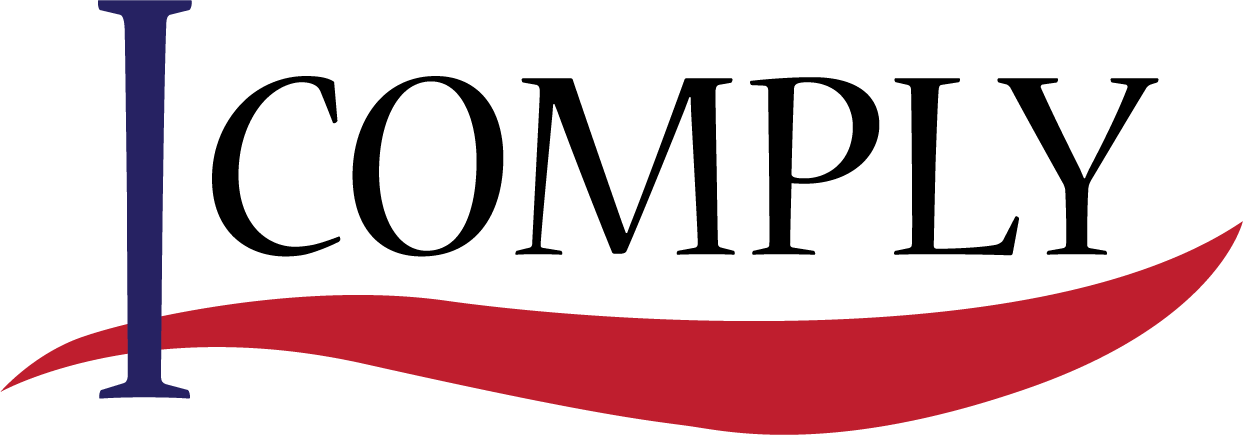 |
The Mission of State and Federal Communications is to make sure that your
organization can say, "I Comply."
We are the leading authority and exclusive information
source on legislation and regulations surrounding
campaign finance and political contributions; state,
federal, and municipal lobbying; and procurement
lobbying.
Contact us to learn how conveniently our services will
allow you to say "I Comply" for your compliance
activities. |
www.stateandfed.com |
|